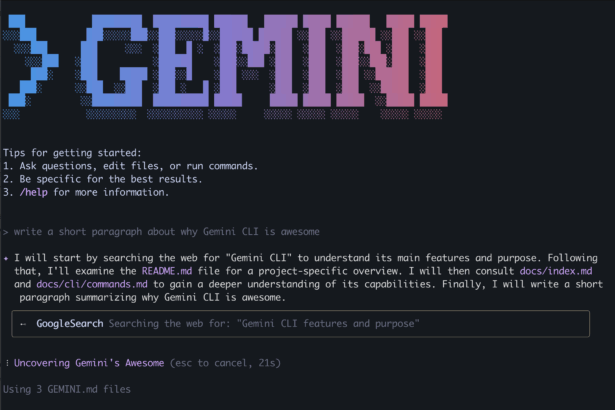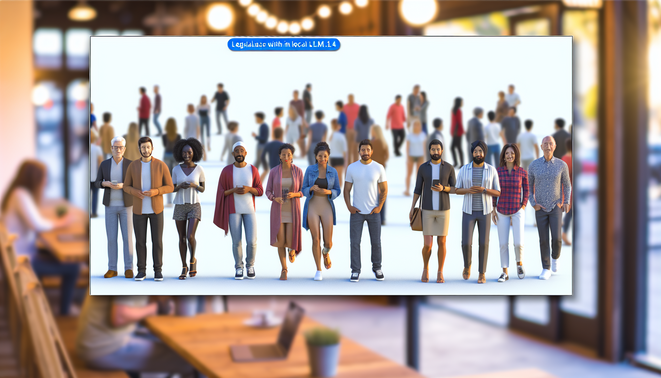Introduction: The Evolution of SEO in the Age of AI
SEO has undergone significant transformations, particularly with the advent and incorporation of artificial intelligence (AI). In the current digital landscape, AI is reshaping how search engines understand context and user intent. Traditional SEO methods often relied on keyword-heavy content; however, AI algorithms like Google’s BERT and RankBrain now prioritize semantic understanding, allowing search engines to better interpret the nuances of queries and provide more relevant results [Source: Search Engine Journal].
The Rise of AI-Driven Content Generation
The emergence of AI-driven content generation tools has transformed the landscape of digital marketing and SEO strategies. Technologies such as OpenAI’s GPT models and other advanced platforms allow businesses to produce high-quality, relevant content at unprecedented speeds. This automation not only enhances productivity but also enables the creation of personalized content tailored to audience preferences, improving engagement and conversion rates.
AI content generators synthesize data from vast sources, optimizing content for search engines by incorporating relevant keywords and addressing user intent. This capability significantly impacts SEO strategies, as businesses can achieve higher rankings through optimized content without the exhaustive research typically required in traditional writing processes. According to research by Forbes, companies leveraging AI for content creation see substantial growth in web traffic and customer engagement.
The Role of Machine Learning in Search Algorithms
Machine learning significantly enhances search algorithms, allowing search engines to provide more precise and relevant results. By utilizing advanced algorithms, search engines such as Google can analyze user behavior, preferences, and contextual information to tailor search results based on individual needs.
One of the key machine learning techniques employed in search algorithms is Natural Language Processing (NLP), which helps search engines understand and interpret user queries more effectively. For instance, a user searching “best places to eat near me” will receive localized suggestions that are not just based on keywords but also on contextual relevance, user reviews, and algorithmic predictions about likely preferences.
User Intent: Understanding and Predicting Behavior
AI has revolutionized the interpretation and response to user intent in search queries, leveraging complex algorithms and vast data to better align search results with user expectations. By understanding the nuances of natural language, AI systems can grasp not only the literal meanings of words but also the contextual sentiments behind queries. For instance, Google’s BERT enhances understanding by interpreting the subtleties of user intent and context in search queries, improving relevance and accuracy in results [Source: Search Engine Journal].
Voice Search Optimization in 2025
The rapid evolution of voice search technology is set to significantly impact SEO practices by 2025. As smart home devices and voice-activated assistants gain prevalence, over 55% of households are projected to use voice search capabilities regularly, which necessitates a transformation in how businesses approach search engine optimization.
Key strategies for optimizing content include focusing on conversational keywords rather than traditional search terms, as voice queries tend to be more natural and question-based. According to a study by Dartmouth, about 70% of voice search results are sourced from featured snippets, indicating the importance of structured data and content that addresses queries directly.
Visual and Video SEO: The Next Frontier
Optimizing visual and video content for search engines is increasingly critical, especially as advancements in AI enhance analysis and indexing capabilities. Visual content, including images, infographics, and videos, carries significant weight in SEO strategies due to its ability to engage audiences and improve user experience.
Key Strategies for Visual and Video SEO
- Image Optimization: Use descriptive, keyword-rich file names and alt text to help search engines understand the context of images.
- Video SEO Best Practices: Create engaging video content that retains viewer attention, including relevant keywords in titles and descriptions.
- Structured Data Markup: Implement schema markup for images and videos to increase chances of appearing in rich results.
- Mobile Optimization: Ensure visual content is optimized for mobile devices to enhance user experience and rank higher in searches.
Impact of Personalization on SEO Strategies
As personalization technologies continue to evolve, their impact on SEO strategies becomes increasingly significant. Personalized search results are tailored to individual users based on their preferences, browsing history, and location.
- Dynamic Content Delivery: Websites need to adopt a more flexible content strategy that utilizes tools capable of analyzing user data.
- Local SEO Optimization: Businesses should tailor their SEO strategies to local preferences and trends for improved visibility.
- Enhanced User Engagement: Personalization can drive higher user engagement, as users are more likely to interact with relevant content.
Ethical Considerations and Challenges in AI SEO
The integration of AI in SEO raises significant ethical considerations that must be navigated carefully. One of the primary dilemmas revolves around content ownership. The rise of AI-generated text complicates traditional concepts of authorship and copyright. For instance, if an AI model generates a blog post, the questions of authorship and intellectual property become complex.
Moreover, AI-driven SEO strategies can perpetuate biases present in their training data. This can potentially lead to a homogeneous representation in digital spaces, contradicting the goals of inclusivity and diversity in online content. Transparency in AI operations is crucial to foster trust among users and content creators [Source: American Marketing Association].
Preparing for the Future: Strategies to Stay Ahead
SEO professionals face an evolving landscape shaped by AI advancements. Key strategies to stay ahead include:
- Embrace AI Tools: Use AI-driven software for keyword research and content optimization.
- Focus on E-A-T: Build authority and trustworthiness through credible backlinks.
- Optimize for Voice Search: Adapt your SEO strategies to include conversational keywords.
- Enhance User Experience (UX): Provide a seamless user experience focusing on site speed and mobile-friendliness.
Conclusion: Embracing Change in SEO Practices
Embracing change in SEO practices is paramount to sustaining success in the ever-evolving digital landscape. AI tools, such as natural language processing and machine learning algorithms, are revolutionizing how search engines analyze content and user intent. Companies that leverage AI tools can automate repetitive tasks, focusing their resources on strategic planning to remain competitive as the digital landscape grows more complex [Source: Search Engine Journal].
Sources
- Digital Marketing Institute – How AI is Changing SEO and What You Need to Know
- Dartmouth – Analyzing Voice Search Trends
- Forbes – How AI is Revolutionizing Content Marketing for Agencies and Their Clients
- Search Engine Journal – Google BERT: Understanding Its Impact on SEO
- American Marketing Association – AI and Ethics Report
- Moz – How AI is Revolutionizing SEO
- Search Engine Watch – Understanding the Importance of Voice Search Optimization
- Harvard Business Review – Why Companies Should Invest in Data and Analytics
- Salesforce – What is Personalization?






